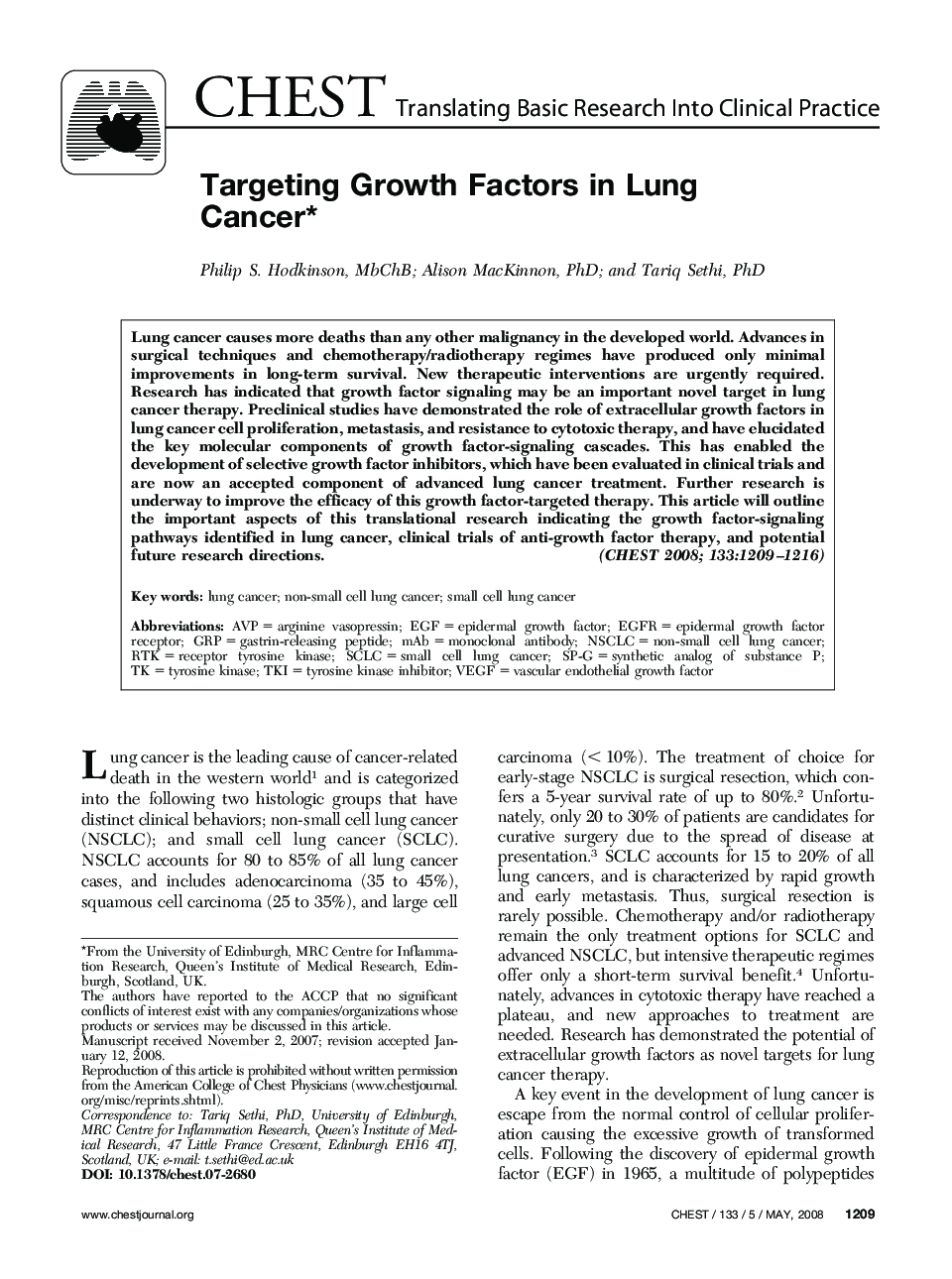| Article ID | Journal | Published Year | Pages | File Type |
|---|---|---|---|---|
| 2904169 | Chest | 2008 | 8 Pages |
Lung cancer causes more deaths than any other malignancy in the developed world. Advances in surgical techniques and chemotherapy/radiotherapy regimes have produced only minimal improvements in long-term survival. New therapeutic interventions are urgently required. Research has indicated that growth factor signaling may be an important novel target in lung cancer therapy. Preclinical studies have demonstrated the role of extracellular growth factors in lung cancer cell proliferation, metastasis, and resistance to cytotoxic therapy, and have elucidated the key molecular components of growth factor-signaling cascades. This has enabled the development of selective growth factor inhibitors, which have been evaluated in clinical trials and are now an accepted component of advanced lung cancer treatment. Further research is underway to improve the efficacy of this growth factor-targeted therapy. This article will outline the important aspects of this translational research indicating the growth factor-signaling pathways identified in lung cancer, clinical trials of anti-growth factor therapy, and potential future research directions.
